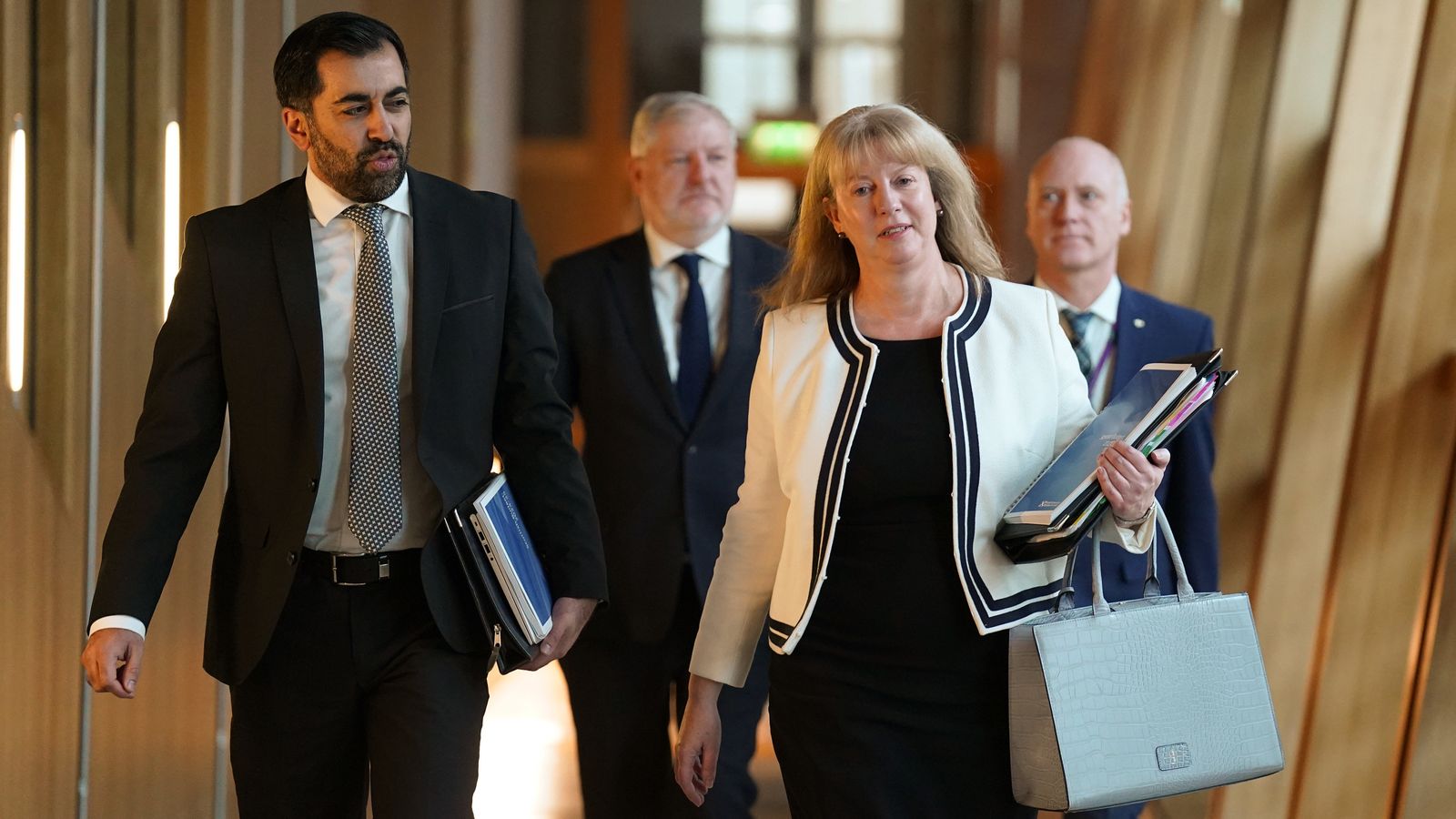New income tax band in Scotland will hit everyone earning over £75,000

A new tax threshold has been created for high earners in Scotland, meaning anyone who earns more than £75,000 will pay a rate of 45%.
Scotland already had the highest tax band in the UK at 47% for people earning more than £125,000.
This will also rise by 1% next year to 48%.
The move was announced by deputy first minister and finance secretary Shona Robison as she unveiled her first Scottish budget in a statement at Holyrood on Tuesday.
In other areas of tax, the three lowest rates will see no increase to their rates while the starter and basic rate bands will increase by the level of inflation.
The changes have been designed to help plug a £1.5bn black hole in the country’s finances.
The Scottish government will fully fund its proposed council tax freeze, providing local government with the equivalent of a 5% rise.
Ms Robison said it will deliver more than £140m of additional investment for local services.
She added: “Combined with the other support being provided to local government, this will increase their overall funding by 6% since the last budget, taking local government funding to a new record high of over £14bn.”
Advertisement
Councils will also be provided with £1.5m to wipe out school meal debt incurred by pupils across Scotland.
Ms Robison said the move would remove a “worry hanging over families up and down the country who are struggling to make ends meet”.
Addressing MSPs, Ms Robison said funding for NHS boards will rise by £550m, or 4.3%. She said the uplift was “above real terms” and would amount to £13.2bn.
“This investment will help the NHS continue to evolve its delivery of services and work to improve waiting times,” she added.
This was Humza Yousaf’s first Scottish budget and was billed as the nightmare before Christmas as his team grappled with what they branded the “toughest” set of circumstances since devolution.
Independent analysis suggested the Holyrood government faced a funding gap of around £1.5bn.
Amid heavy criticism of Rishi Sunak’s autumn statement, ministers north of the border used this festive budget to create a new 45p in the pound tax band for earnings over £75,000.
The top rate for higher earners will also increase to 48p.
Scotland was already the highest tax paying part of the UK, but this further reinforces that and should bring in an additional £82m to the government coffers.
This was a budget of, what could be argued, mixed signals as there was also confirmation of a council tax freeze for all Scots. Some argue that benefits the richest as those on lower incomes are excused from paying.
The freeze has put Mr Yousaf on a collision course with some council chiefs who were hoping to hike bills by as much as 10% to avoid closure of key public services. The government will give local authorities the equivalent of 5% cash.
Mr Yousaf is still trying to find his feet. Fresh from a hammering in a recent by-election and the SNP sliding in the polls – will this budget be a winner with those the SNP are hoping to win over?
Read more from Sky News:
The world is about to have its biggest election year ever – and AI experts are sounding the alarm
What you need to know about Michelle Mone and the PPE scandal
Business rates for premises valued at less than £51,000 will be frozen, while hospitality businesses in Scotland’s islands will be given 100% relief.
Ms Robison said Scotland is at the “upper limit of mitigation” that can be provided within the devolved settlement.
“Quite simply we cannot spend money that we do not have, and we cannot mitigate every cut made by the UK government,” she said.